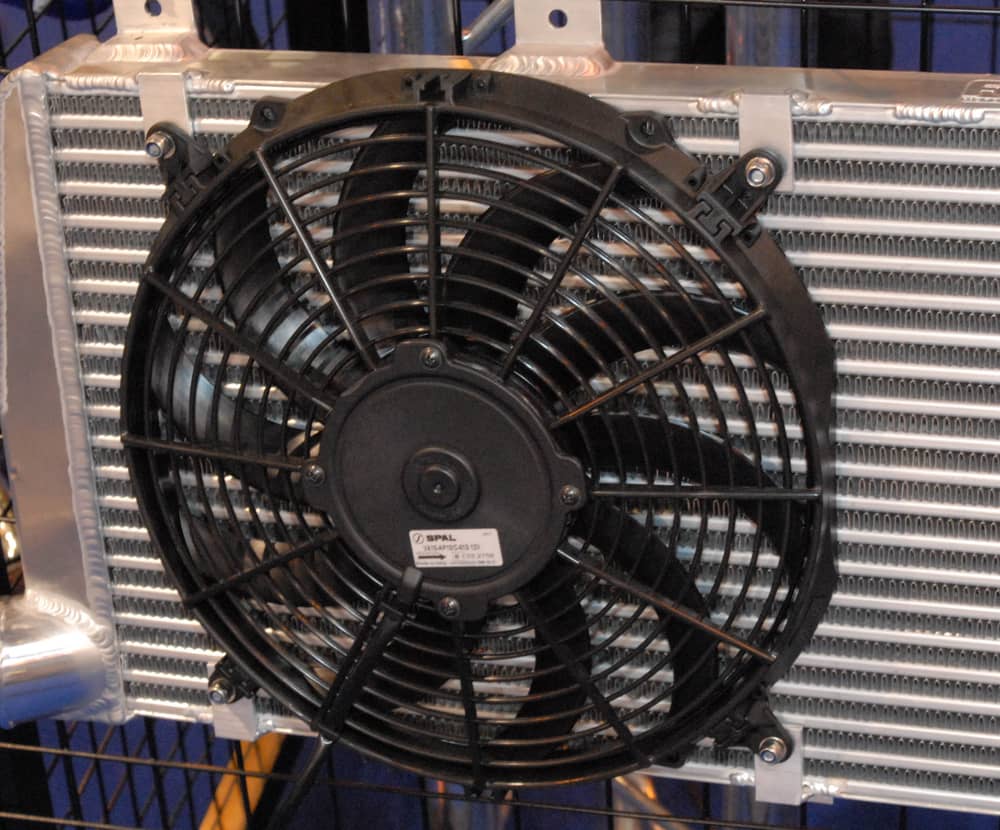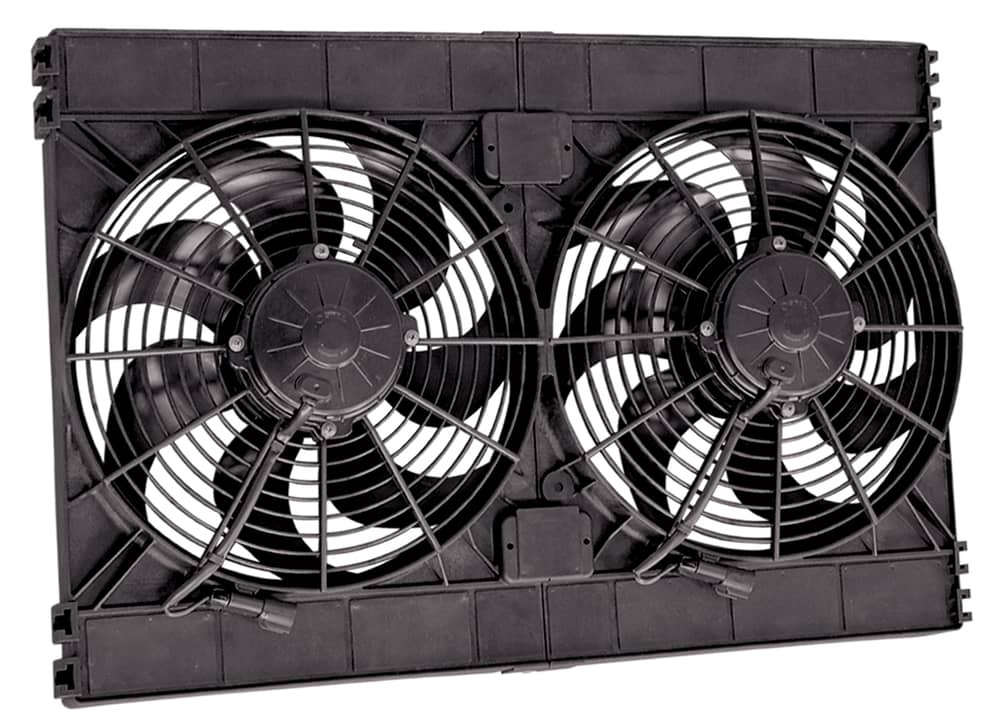When you turn on your vehicle’s air conditioning, you are not only cooling the cabin but also increasing the stress on the engine. Vehicles are equipped with a radiator fan, which plays an important function in maintaining the engine’s optimal temperature. Should radiator fan turn on when AC is on?
When you turn on your engine, the fan won’t turn on until it reaches the normal operating temperature. However, the radiator fan will activate when the air conditioner is running since it aids in dissipating the extra heat generated by the air conditioner. Your engine and AC system will both run as effectively as possible thanks to this synchronization.
But what happens if the radiator fan is still inoperative even after the engine has warmed up to its usual operating temperature and the air conditioner has been turned on? What ought to we do?
In this article, we will explore this system, and tips for when radiator fans don’t work normally.
What Causes The Radiator Fan Not To Work When AC Is On?

Several things can cause the radiator fan to stop working when the air conditioner is turned on. When the AC is on, the radiator fan’s function is crucial for maintaining optimal engine temperature and AC system functioning. Here are some frequent reasons why the radiator fan may not work while the air conditioner is turned on:
Faulty Radiator Fan
The radiator fan may become worn out over time. The fan motor could fail, or the blades could deteriorate or distort. When this occurs, the fan won’t function properly and might not react to the increased heat the AC system is producing.
Faulty Fan Relay
Relays often control radiator fans. The fan won’t receive the signal to start if the relay that turns on the fan while the air conditioner is on malfunctions. Electrical problems or straightforward wear and tear might both result in a relay that isn’t working properly.
Blown Fuse
Fuses shield the fan’s circuit from damage. The fan might not work if a fuse blows, which would interrupt the fan’s power supply. It’s important to check the fuses for the cooling fan and replace any that are faulty.
Faulty Temperature Sensor
To track the heat generated by the engine, many vehicles utilize a temperature sensor. The radiator fan is signaled to turn on as the temperature rises. Even when the engine gets too hot due to AC operation, the fan might not turn on if this sensor is malfunctioning or transmitting false values.
Wiring Issues
In the fan’s electrical circuit, corroded or damaged wiring can prevent the fan from getting the power it needs to operate. The wiring may therefore need to be checked and repaired.
AC Compressor Issues
When the AC compressor has issues, the radiator fan may also function improperly. The compressor in an air conditioner is in charge of producing both heat and cold air. It may fail to send the signal to engage the fan if the compressor is malfunctioning or experiencing problems.
Coolant Level and Thermostat
The thermostat and coolant system control the temperature of the engine. Inadequate engine temperature management may be caused by low coolant levels or a broken thermostat. It’s possible that the fan won’t operate when the AC is operating if the engine doesn’t heat up as predicted.
Software or Control Module Issues
A control module with an electrical interface frequently manages the radiator fan’s functioning. Operation of the fan can be interfered with by software bugs or issues with these modules. A software upgrade or module replacement could be required occasionally.
Aftermarket Modifications
The radiator fan may not function properly if the cooling system or electrical parts of the car have undergone aftermarket changes. In these situations, it’s crucial to make sure that any alterations are compatible with the cooling system of the car.
Should Radiator Fan Turn On When AC Is On?
Yes, usually when the air conditioning is on the radiator fan should come on. This is a typical activity in the majority of vehicles and is intended to aid in dissipating the extra heat produced by the compressor and condenser of the AC system.
The compressor begins to operate as soon as the air conditioner is turned on, cooling the air inside the car. To keep the engine from overheating, this process also produces heat, which must be evacuated. By bringing air through the radiator and aiding in the cooling of the engine coolant, the radiator fan plays a significant part in this.
Typically, sensors and relays in the vehicle’s control system coordinate the operation of the radiator fan and the air conditioning system. The radiator fan is turned on when the air conditioner is turned on and the system determines that more cooling is required to keep the engine at a safe operating temperature.
There could be a number of causes, as indicated in the previous section, for your radiator fan to not operate when the AC is running. To avoid engine overheating and to maintain the effectiveness of your AC system and your car’s cooling system, you should take immediate action.
How To Fix Radiator Fan Not Working When AC Is On?

To potentially fix the issue, you can refer to the instructions below:
Check the Fuse and Relay
Check the radiator fan and AC system-related fuses and relays first. Find the fuse box in your car and label the necessary parts. If the fan fuse is blown, check it and replace it. To determine if the relay is the problem, replace the fan relay with a comparable one from another component of the car. If the fan turns on, the relay is probably broken.
Inspect the Fan Motor
After that, check the fan motor. It’s time to inspect the fan motor itself if the fuse and relay are functioning properly. Use a multimeter to check for continuity across the fan motor terminals after disconnecting the electrical connector from the fan motor. If there is no continuity, it is likely that the fan motor is broken and needs to be replaced.
Check the Temperature Sensor
Examine the temperature sensor next. Check to see if the temperature sensor on the engine is operating properly. It’s possible that a broken sensor won’t cause the fan to run. If the sensor is malfunctioning or providing inaccurate readings, replace it.
Inspect Wiring and Connections
Examine the fan circuit’s connections and wiring with great care. Check for any exposed wiring, loose connections, or corroded or damaged wires. To guarantee good electrical connectivity, fix or replace any broken components.
Test the AC Compressor
Test the AC compressor as well to make sure it’s working properly. It’s possible that the compressor won’t provide the signal to turn on the fan if it isn’t operating properly. If necessary, take care of any problems with the AC compressor, such as leaks or electrical issues.
Coolant and Thermostat Check
Think about the thermostat and coolant as well. Make sure your engine has the proper amount of coolant because low coolant levels might impair the fan’s operation and engine temperature. A broken thermostat might result in inappropriate engine temperature regulation, so test the thermostat to make sure it opens and closes properly.
Software and Control Module Check
Additionally, look for any software or control module problems. Problems with the body control module (BCM) or engine control module (ECM) in contemporary automobiles can prevent the operation of the fans. Make sure the software for these modules is up to date and that they are operating properly.
Professional Assistance
Finally, you can ask a skilled mechanic for help if you’ve tried these methods and still can’t fix the problem. They possess the knowledge and diagnostic equipment necessary to identify and address complicated issues.
Keep in mind that an ineffective AC system and an overheated engine can result from a broken radiator fan when the AC is running. To keep your car operating properly and generally healthy, timely diagnosis and repair are crucial.
Read More: Why Ford Fusion AC Smells Like Gas?
Final Thoughts
In conclusion, when the air conditioning is turned on, the radiator fan should certainly turn on. To avoid engine overheating and maintain the effectiveness of the AC system, this coordinated operation is crucial. To prevent potential engine damage and guarantee a safe and comfortable driving experience, prompt diagnosis and repair are essential if the radiator fan stops working while the AC is on.
